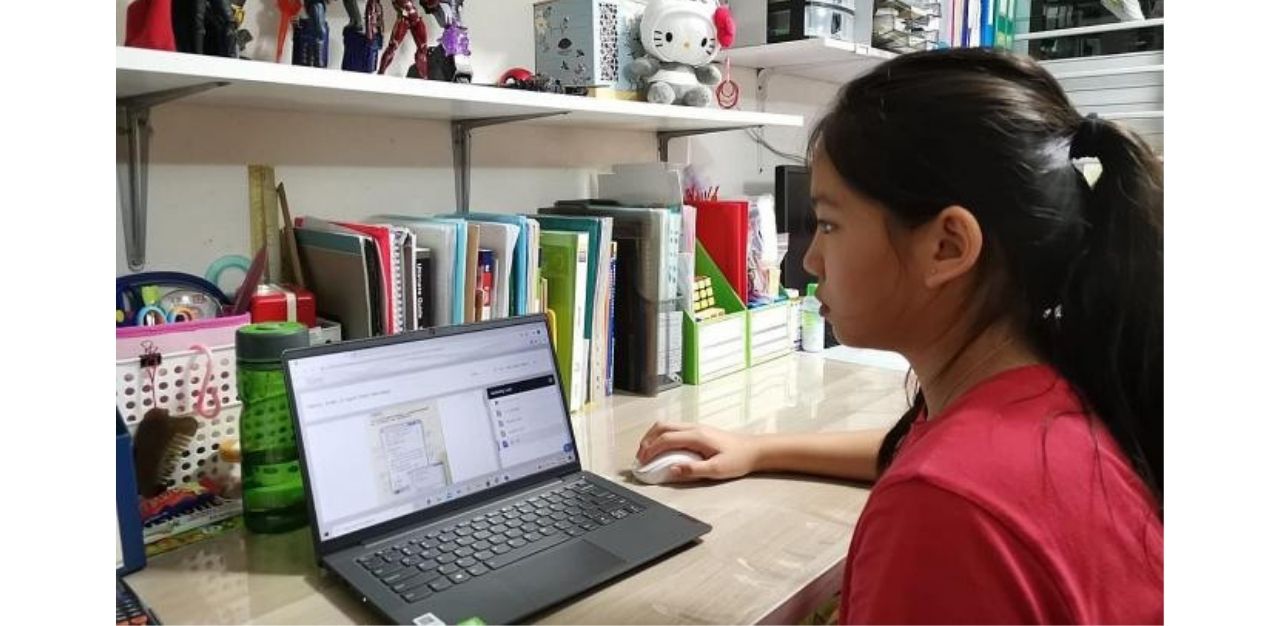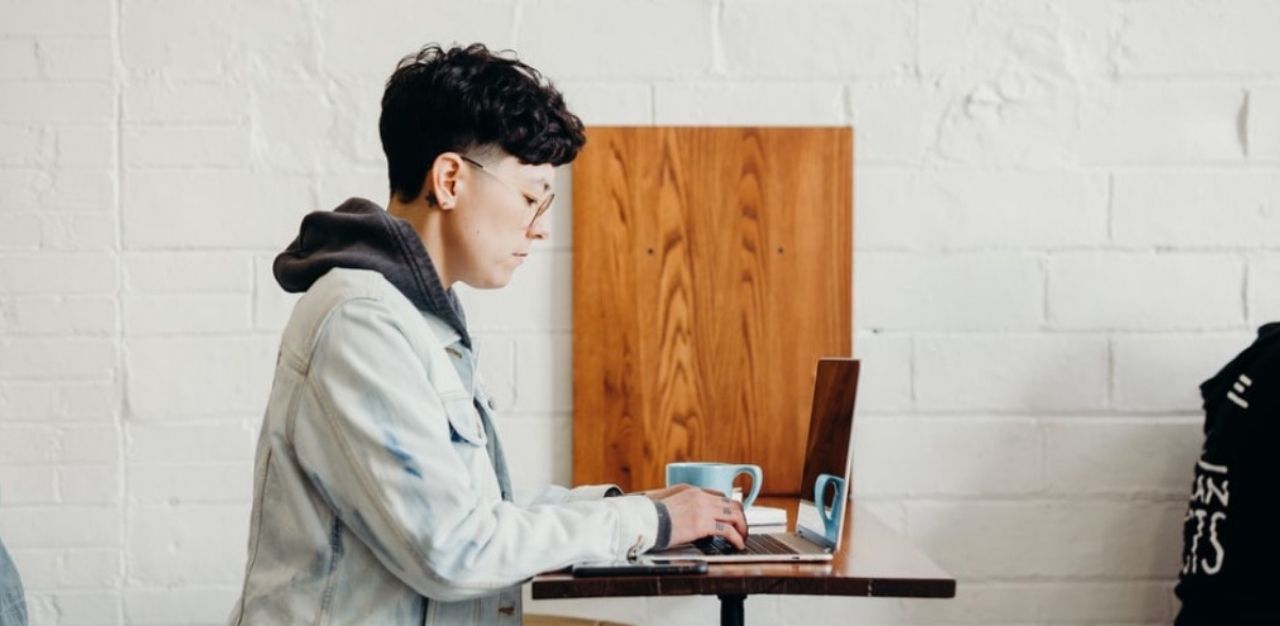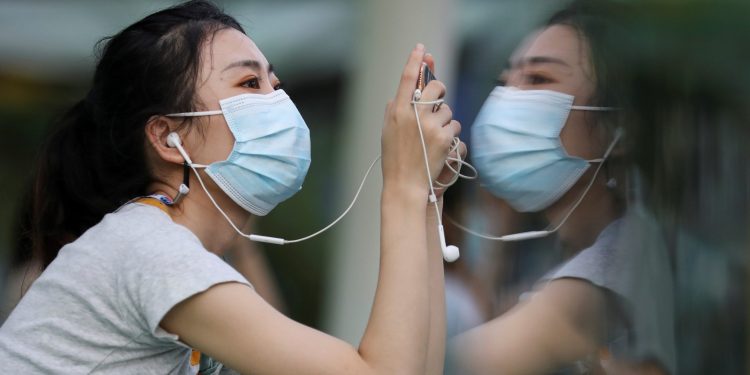The COVID-19 pandemic has forced young people online as schools shift to home-based learning and classes are conducted over Zoom or Google Meets, isolating them from their friends and peers, taking away potential jobs and giving them little certainty of the future. Entertainment has been limited to just watching Netflix shows, video-calling their friends, or mindlessly scrolling Tiktok and Instagram. This has become the new normal for this “lockdown generation”. Gone are the days when young people hang out in big groups at parties, live concerts or make new friends at orientation camps.
For 16-year-old Sharlyz Ng, the transition to home-based learning and online interactions has not been easy. While Instagram, Tiktok, and Houseparty have become her go-to social platforms for keeping up with her friends during the lockdown period, meeting and interacting with people online have taken a toll on her social skills. Social media has also made her lazier to reach out to friends personally to ask about their lives.

When she took a break from social media, Sharlyz says it was then that she realised she did not know what was going on with her friends because she had not been actively calling or texting them to ask how they were doing, and they had not been calling or texting her as well.
The reliance on online interaction has also given her anxieties when she realises that interacting with people online is extremely different from meeting face to face .
“Through text, you can think about your responses and reply without the need to articulate a certain tone, expression and body language. For example, you can use internet slang to make it seem as though you are particularly enthusiastic about the conversation topic when you are actually maintaining a straight face in person,” she says.
“Going back to school [when the lockdown restrictions have eased], I felt like I had to think through every interaction, and though most of the time I was on autopilot, I would over-analyse my actions and words and wonder if what I did was awkward,” she adds.
19-year-old Srinidhi Ragavendran, a freshman at the Nanyang Technological University (NTU), also says that her social life barely existed throughout 2020 and that she “could probably count with [my] fingers how many times [I] was able to actually meet [my] friends physically”.
“I only kept in touch with my closest friends and, of course, with my family. I would call some of my friends regularly to either ‘watch’ an episode of a show together or just talk after a long day. Just having that one person whom you can chat with about anything really made me feel less lonely during the circuit breaker,” she adds.
With so much time on her own, Ms Srinidhi found that she had to actively look for things to keep herself occupied. They included doing yoga, watching movies and TV shows that she found meaningful, and playing cards or cooking with her family.
The use of social media during this period “became more of a bane than a boon” for her. As people only present their “best selves” on social media, the former private A-level candidate found that watching her friends move on with their lives while she had to resit her A-levels made her “slip into toxic and self-deprecating thoughts”. She eventually logged out of her main Instagram account and made a smaller one, just to keep in touch with her closest friends.
“I think we often forget that we are capable of curating our own experiences on social media simply because of how addictive it is and how easily we get used to the interface that’s presented to us,” the undergraduate says.
“Creating that smaller account truly made me reconnect with the main intent of social media in the first place, to actually keep in touch with people,” she adds.
The effects of social media on our youth’s psyche

Psychotherapist Sophia Goh from Sofia Wellness Clinic says that social media can allow young people to connect with a broader group of people, but it is typically on a more superficial level as they are interacting with a tailored version of one’s life. This can result in a sense of loneliness despite them being well-connected on social media.
The iGen, born from the mid-1990s onwards, are the first generation to spend their entire adolescence in the age of the smartphone. Ms Goh says that with social media and texting replacing other activities, iGen spends less time with friends in person, which perhaps explains why they are experiencing unprecedented levels of anxiety, depression and loneliness.
“They are less comfortable with social interactions and face increasing mental health concerns,” the principal counsellor says.
“Peer relationships form a very important part of our teenage lives. Being able to form peer groups is important in building self-esteem and helping us to establish our identity,” she adds.
As a result of the pandemic, Ms Goh says they miss out on the usual school experiences, such as orientation camps and freshmen activities, which form a large part of their education experience. These activities usually allow them to form networks, friendships and peer groups. Without these activities, young people have fewer peer groups in school and this impact persists even after schools resume in-person classes. She says she has encountered cases where teenagers become depressed as they struggle with school transitions and not being able to make friends in a new school.
The struggles of home-based learning

Before the Covid-19 epidemic hit , Sharlyz would usually head out to the library to study because of the conducive environment, and having a work space gave her the motivation to study. However, with the transition to purely studying at home, Sharlyz experienced a huge productivity and motivation slump.
Firstly, with her family working from home and having home-based learning all under the same room, the environment was “extremely chaotic” due to her big family. It was difficult for her to secure her own room for calls, and sometimes the internet was “so slow because too many people were connecting to it at the same time”. Also, because of her younger siblings, she found it difficult to concentrate when they were playing noisily while she was trying to study or pay attention during her online classes.
Going into home-based learning and not knowing when it would stop, Sharlyz started to lose sight of why she was studying hard, because “tests and exams were being cancelled” and she could easily refer to notes to complete graded assignments.
Sharlyz says that every day was “pretty much a repeat of the previous day during circuit breaker and she could put things off without any immediate repercussions. This was totally different during the pre-covid days when she had to attend school under a full schedule of lessons and co-curricular activities (CCA). It is no wonder under home-based learning that Sharlyz lost her productivity and started to procrastinate a lot.
Thankfully, she was able to adjust quickly back into the academic rigour when school proper started.
Most of Ms Srinidhi’s private lessons were conducted online and she found herself staring at a 13-inch screen for many hours on end. The undergraduate says that while online lessons are more convenient, they have also made her more susceptible to losing focus or zoning out.
Like Sharlyz, Ms Srinidhi found it initially hard to study with the transition to home-based learning.
“I’m someone who likes to make a clear distinction between my sanctuary and my workspace. Being able to go to school helped me make that distinction. However with the [lockdown], home became the one space where I had to do everything and that took time to get used to,” she says.
“I guess what helped was to designate clear spots for me to study and create a routine for myself which I could get used to,” she adds.
Ms Goh says that it is common for young people to experience disruption in their education programmes. Not all teenagers adapt well to the online learning format and can find it overwhelming. Clients in their teenage years have come to her for mental stress issues as they struggle to cope academically, and have problems with self-esteem.
When the lockdown generation hits the job market

Mr Gerald Tan, Projects Director of AVODAH People Solutions, says the world will carry on with using digital platforms as the Industry 4.0 continues and technologies like AI, 5G and 3D printing and blockchain mature. More employees will also experience a hybrid arrangement at work, allowing them more time to manage their other responsibilities, such as childcare and family care; or perhaps do side hustles to build extra income and pursue their interests outside of their jobs.
Since the lockdown generation can adapt well to working from home and are digitally savvy to utilise digital e-platforms and tools to enhance their productivity, being able to work independently with strong work ethics and having the adaptability to respond to fast changing work environments will make them attractive to prospective employers.
However, Mr Tan points out that the learning curve for this generation will be steeper as they will need to learn how to network, being isolated from physical interaction due to measures taken by the government to protect its people’s health. They will need to learn how to relate, correspond, and engage with their co-workers and supervisors not only over the virtual workspaces but also take the lead to initiate face to face engagements with peers.
“In a physical workspace with face to face interactions with their co-workers and supervisors, the integration learning curve is less steep as compared to doing this over virtual workspaces where everyone is only concerned about transactional work conversations,” he adds.
Ms Goh also agrees that this generation will be less comfortable with social interactions as they enter the workforce. They would probably prefer flexible work hours, remote work opportunities and multiple personal touchpoints.
Mr Tan also feels that this lockdown generation will go up against stronger competition from the global remote workforce, as more companies become open to working with freelancers located worldwide.
He says employment terms are also unlikely to be permanent with short term contracts and gig freelancing work becoming the norm as more employers choose this route to stay nimble. To keep themselves on their toes, Mr Tan says that the lockdown generation will need to take charge of their career planning by consistently learning new skills and developing skills mastery while being clear about their career direction instead of relying on employers to plan for them.
Her being home for a whole year and not having “tapped into my social side for a really long time” had Ms Srinidhi worried initially about losing her social skills.
“I recall being very nervous before the start of university just thinking about having to meet new people and interact with them. But I was lucky the e-orientation allowed me to have a smooth transition. It took some time to get used to meeting and interacting with people online but I believe I have now become more sociable,” she says.
“In a weird way, being alone during COVID-19 actually gave me more time to reflect. I believe this adds value to conversations and I am more ready to network and interact with others both digitally and in real life.”
Join the conversations on TheHomeGround Asia’s Facebook and Instagram, and get the latest updates via Telegram.














